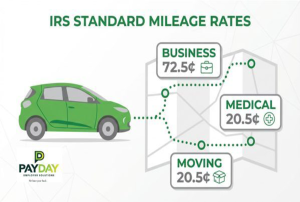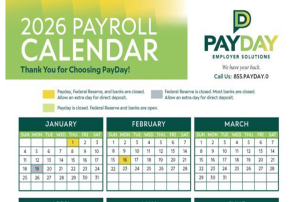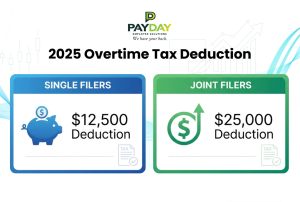In March 2020, Congress passed the Coronavirus Aid, Relief, and Economic Security Act’s employee retention credit in just 12 days with no contemporary legislative history. The IRS has not and will not issue formal regulatory guidance, leaving some gray areas and many unanswered questions for taxpayers. The initial confusion surrounding eligibility for the employee retention credit was further exacerbated by subsequent legislative changes to the CARES Act, resulting in an eligibility matrix for employers to navigate with little guidance.
Understanding the details of the legislation is challenging—it can be complex, ambiguous, and almost contradictory. Navigating and interpreting these intricacies is necessary to determine eligibility and calculate an accurate ERC. As you read the highlights of the legislative updates since March 2020 below, it is easy to see why there are so many misconceptions.

COMMON MISCONCEPTIONS
So how do employers determine whether they are eligible for the ERC? Through my experience working with clients, I have identified six of the most common misconceptions that I hear regarding eligibility for the ERC.
1. Revenue declines are a requirement.
The assumption that some negative financial impact is required to benefit from the ERC is incorrect. Many employers may be eligible for the ERC despite not having satisfied the gross receipts test. While the CARES Act seems to make it clear that no decline in revenue is required by stating an employer may be considered eligible if they satisfy the government orders test or the gross receipts test, this fact is often overlooked by employers.
2. A complete shutdown of operations is required.
Many employers believe they aren’t eligible because their operations weren’t completely halted, but the legislation specifically provides that an employer who experiences a partial suspension of operations may satisfy the government orders test. For example, a restaurant that was forced to close in-person dining and operate only its takeout or delivery operations can demonstrate a partial suspension of operations as a result of a government order and is therefore eligible for the ERC.
A related misconception is that essential businesses cannot claim the ERC because their operations never completely shut down. Despite the IRS FAQs stating they can’t be relied on as legal authority and aren’t current, this misconception was amplified when the IRS issued FAQs stating essential businesses couldn’t be eligible for the ERC. This FAQ has since been updated.
Essential businesses have been encouraged to operate throughout the pandemic and were vital to keep the world going; there was no intent to exclude these businesses from benefiting from the ERC. Consider a medical provider classified as an essential business and allowed to operate pursuant to a state executive order but which was prohibited from conducting elective medical procedures due to a government directive. Clearly, this employer experienced a partial suspension of its business operations and is likely eligible for the ERC.
3. PPP loan recipients are not eligible.
Many employers are unaware that employers can take advantage of both the Paycheck Protection Program loan and the ERC. The CARES Act initially prohibited PPP loan recipients from taking the ERC. The Consolidated Appropriations Act, however, retroactively amended this provision to explicitly allow employers who received a PPP loan to take the ERC—just not on the same wages paid with forgiven PPP loan funds.
4. Public colleges, universities, and medical providers are not eligible.
Many businesses in the medical and education industries don’t realize that legislative updates allow them to be eligible for the ERC for 2021. The original CARES Act included a governmental employer exclusion, which precluded governmental employers and instrumentalities of the government from claiming the ERC—regardless of whether they satisfied the government orders test or gross receipts test. But the CAA prospectively changed that provision and removed public colleges and universities, as well as employers providing medical or hospital care, from the governmental employer exclusion, allowing them to be eligible only for 2021.
5. Tax-exempt organizations are not eligible.
The CARES Act specifically acknowledged tax-exempt organizations may be considered an eligible employer, unlike with most federal tax credits, which are taken against income tax liability.
6. Size affects whether an employer is eligible.
An employer’s headcount classification as small or large impacts only the type of wages included in the ERC calculation; size has nothing to do with eligibility.
Qualified wages for the ERC vary, depending on whether an employer is classified as a large or small employer based on average full-time headcount in 2019. One important caveat: No employer, regardless of size, can include certain types of wages, such as those that fall within the double dipping prohibition set forth in the ERC legislation, wages paid to ineligible individuals, or wages not subject to FICA.
Small employers may include all wages paid, as well as qualified health plan expenses during an eligible quarter. The definition of a small employer changed to 500 or fewer employees (in 2019) for 2021 from 100 or fewer full-time employees (in 2019) for 2020. An employer considered large under the CARES Act may qualify non-service wages and a proportionate amount of qualified health plan costs during an eligible quarter.
CONCLUSION
The CARES Act ERC’s intent hasn’t wavered, but many of the original provisions have changed, leading to misconceptions about the credit. Given the complexities of the ERC, it is wise to consult a professional who has experience in this area when trying to determine whether your business is considered an eligible employer.
source: https://news.bloombergtax.com/tax-insights-and-commentary/six-misconceptions-about-employee-retention-credit-eligibility






